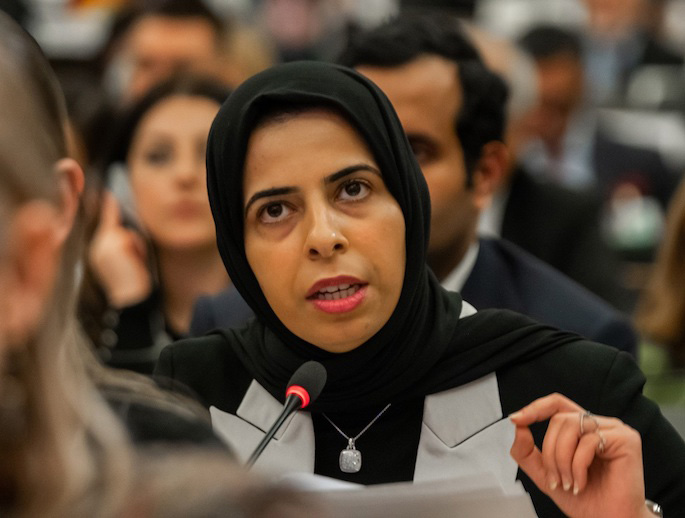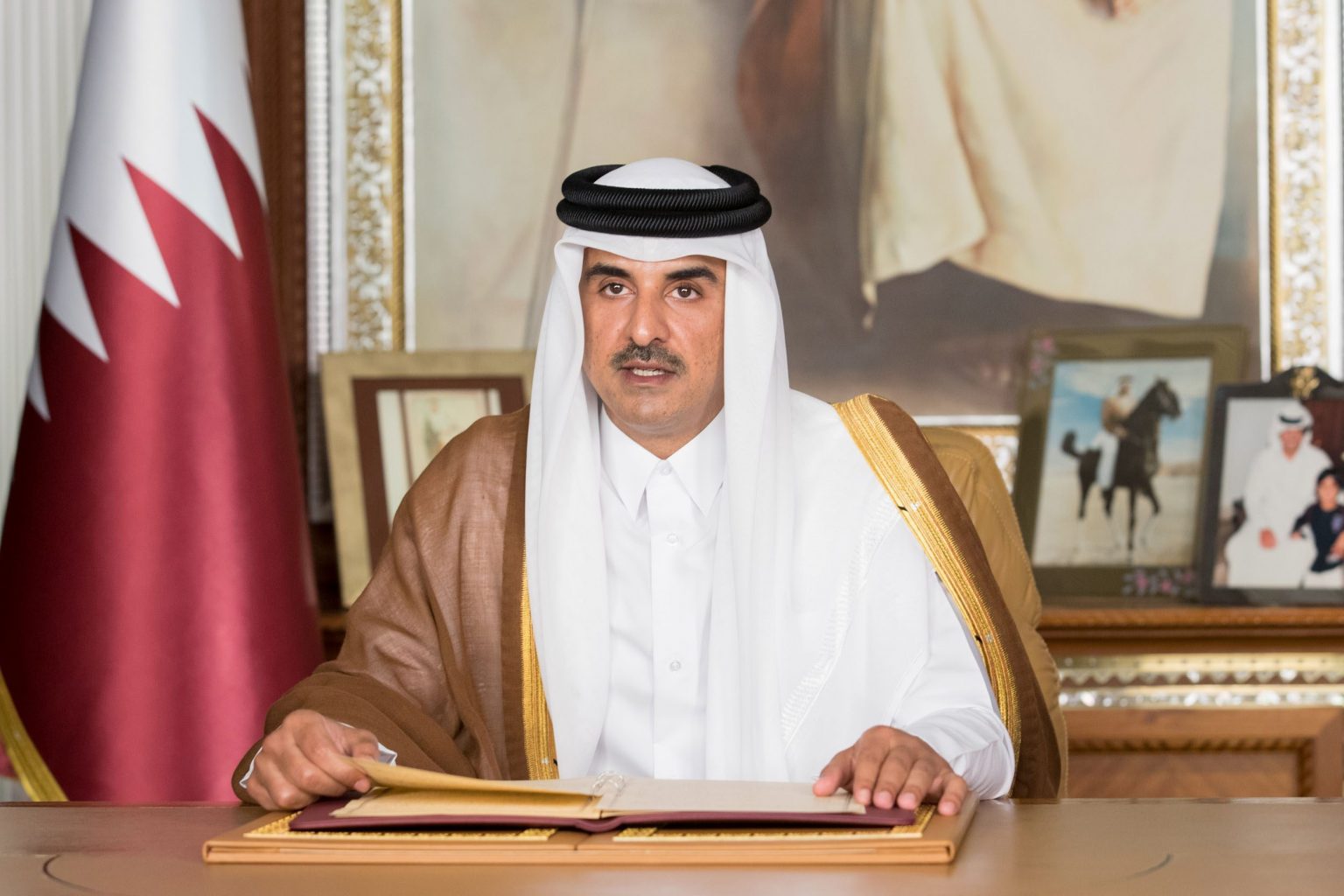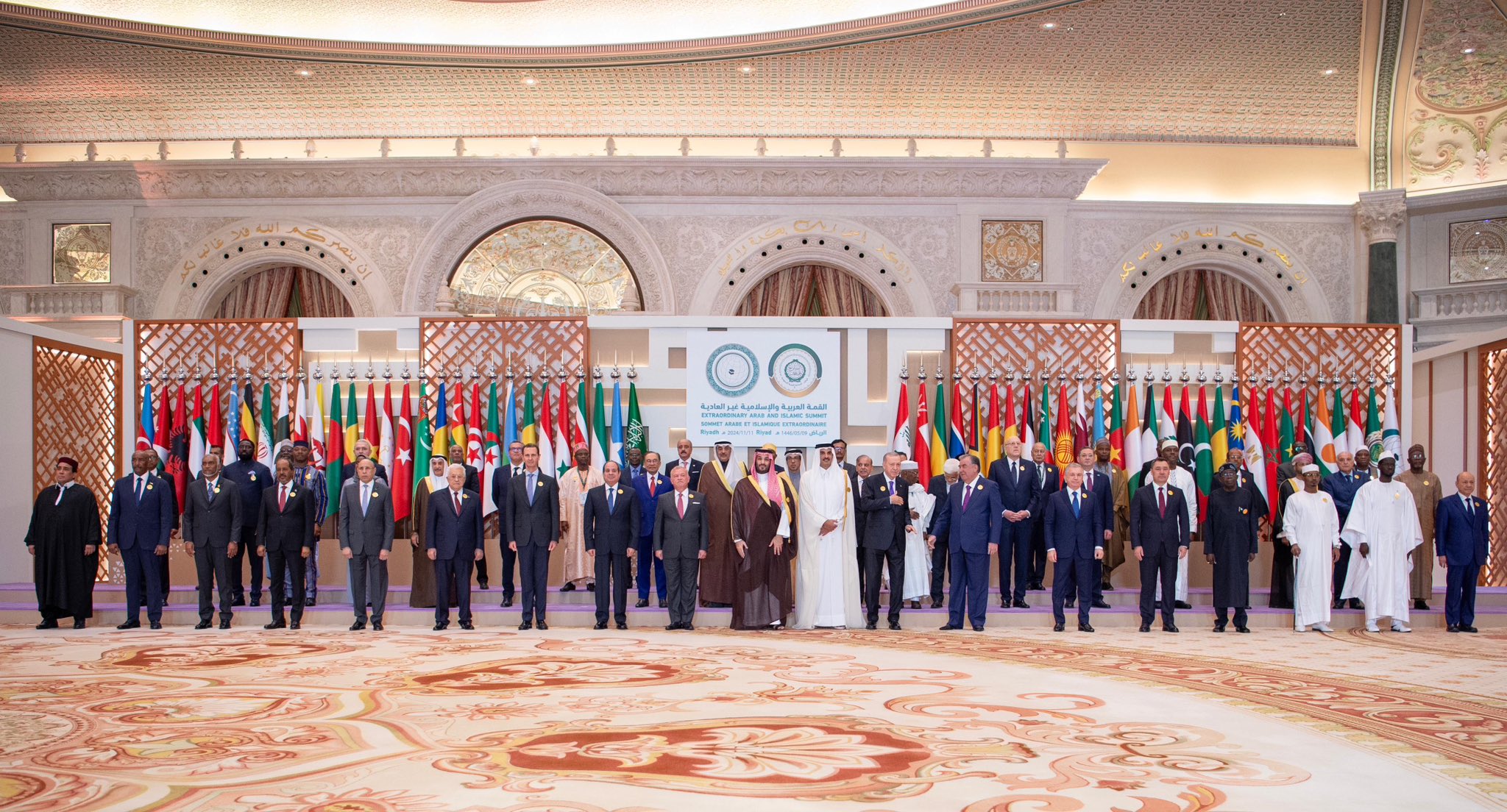
Updated with comments from the director of the Doha Centre for Media Freedom
The country’s highest court has upheld a 15-year prison sentence for a jailed Qatari poet convicted of inciting the overthrow of the government, despite hearing a final appeal from his lawyer on Monday.
According to lawyer Najeeb al-Nauimi, the Court of Cassation released its one-sentence ruling shortly after 1pm.
“There is no justice,” he told Doha News. “Our judicial system cannot be trusted.”
Earlier in the day, al-Nauimi made a 10-minute appeal to the court, arguing that there was no evidence to support the charges against Mohammed Rashid al-Ajami and that a retrial, coupled with a proper investigation, would prove his innocence.
Al-Ajami – who goes by the name Mohammed Ibn Al-Dheeb in his poetry – was not present at Monday’s hearing before the eight-judge panel, which represented his final avenue of appeal within the justice system.
Al-Nauimi conceded that Ibn Al-Dheeb could still seek a pardon from the Emir, but said such a request would have to be pursued by his family, not lawyers.
The case
The charges stem from an incident in 2010, when Ibn Al-Dheeb was studying Arabic literature in Cairo with a group of friends. He was allegedly approached by another Qatari poet named Khalil al-Shabrami, who provoked Ibn Al-Dheeb into presenting a poem indirectly critical of this country’s ruling family.
The exchange was recorded and later published on YouTube.
Qatari authorities arrested Ibn Al-Dheeb in November 2011 and charged him with “inciting to overthrow the regime” and “insulting the Emir.” Originally sentenced to life in prison, Ibn Al-Dheeb’s term was reduced to 15 years in February by Qatar’s Court of Appeals.
At the time, Qatar’s attorney general, Ali bin Fetais al-Marri, denounced the ruling, telling Al Jazeera that the case “is well-founded in law; it is a totally solid case. There is an offense culpable under the law, the perpetrator confessed of the offense.”
The challenge
Al-Nauimi – a former Qatar justice minister – said that there are several problems with the prosecution’s case against Ibn Al-Dheeb. The main issue is the lack of evidence showing that the poem was recited in public, which is a legal requirement to prove the charge of inciting the overthrow of the government. Ibn Al-Dheeb’s supporters say his remarks were made during a private gathering and uploaded to YouTube without his knowledge.
Al-Nauimi also said Ibn Al-Dheeb signed a false confession, admitting he read the poem in front of the media, following two hours of interrogations conducted without the presence of a lawyer.
“He was tired” and signed the papers presented to him, Al-Nauimi said. He added that there is nothing to corroborate the accusation that the poem was presented in public.
“Give me one photograph. Give me one TV (clip). One national newspaper. Give me anything. They have no proof.”
Reaction
Human rights activists called Monday’s ruling “disappointing” and said it reflects poorly on a country trying to brand itself as a center for media and artistic freedom in the Gulf.
Nick McGeehan, a researcher with Human Rights Watch, said it is very difficult to see how the evidence released could support the charges. Furthermore, he noted Ibn Al-Dheeb’s comments were contained in the context of a piece of poetry, rather than a public manifesto.
“He’s not a political figure. He’s a poet. And poets use language in an entirely different way than classic political figures,” McGeehan told Doha News.
He added that Qatar – which recently unveiled several controversial art installations – could face a backlash.
“Artists will, and should, feel extremely uncomfortable having their work exhibited in a country that treats its artists in this manner.”
Journalists in the region are also likely to take note of the “harsh sentence” and temper their reporting accordingly, said Jan Keulen, director of the Doha Centre for Media Freedom.
He added that there was minimal coverage of the case in local newspapers, which he said he finds “very strange” considering it is a Qatar story that made international headlines.
“We regret the self-censorship and climate of fear this sentence provokes,” Keulen told Doha News the day after the verdict was released.
Keulen added that the court’s ruling could undermine his organization’s relationships with the groups it partners with around the world.
Amnesty International researcher James Lynch said that from his organization’s perspective, it is irrelevant whether Ibn Al-Dheeb made his comments in public or private.
“He should be allowed to recite a poem to anyone,” Lynch said in an interview with Doha News. “There shouldn’t have been a case in the first place … Causing offense is not a crime.”
Implications
Because Ibn Al-Dheeb’s case was heard before the country’s highest court, it has set a precedence for future proceedings, Al-Nauimi said. That means individuals charged with similar crimes could face the same “very, very harsh” sentence handed down to Ibn Al-Dheeb, he added.
Al-Nauimi said his client has not yet learned of the court’s final ruling and plans to share the news with Ibn Al-Dheeb when he is permitted to visit him, likely next Monday.
Thoughts?







